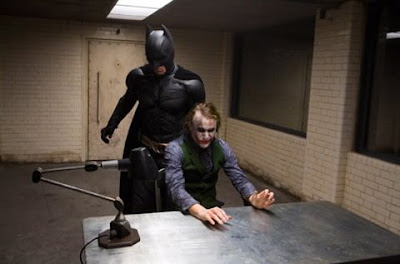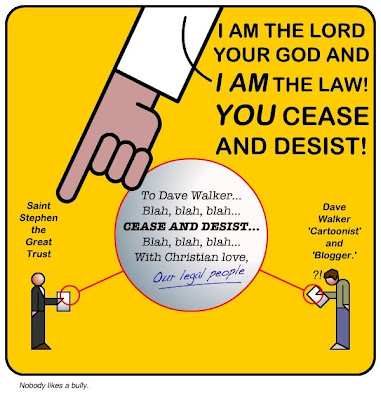
Perhaps the car industry isn’t just going to roll over and die.
Monthly Archives: July 2008
ASBO Jesus is my hero
TBTM20080726
Reasonable Atheism (23): something about mystery and idolatry
The Chimp takes me to task here for being too vague about God (or, to be more precise, about sometimes being vague when pressed, at other times being quite concrete).
So: an analogy which may help.
Consider a diesel engine (something I’ve been doing a lot of recently) eg in a car or a boat.
Someone can own a car with a diesel engine and know very little about that engine, save that it requires to be supplied with fuel on a regular basis, and that it can be kicked into motion by turning a key.
Another person might know a little more – might know, for example, that diesel engines don’t require a spark plug, because the ignition comes from compression of fuel; they might also know some rudiments about how to maintain the engine, eg to check the oil, know how to bleed it of air, and so on.
Another person – say a mechanic working in the garage – might know even more about a particular engine. He would be familiar with how to diagnose faults, how to fine tune it to run optimally, perhaps some history of previous engines in the line and so on.
Finally, another person might be the chief engineer and designer of the engine itself. Such a person might not only know all the attributes of this engine to astonishing detail, but also why the engine was made in one way or another, so are aware, for example, of the balances and trade-offs between one feature and another. Any conceivably realistic question about this engine can be answered by the engineer – the engineer has total knowledge of the engine.
Now the point about idolatry, with regard to God (useful summary: God is not a member of any set) is really about setting limits to what we can know or say about God. In other words, what Christians can say about God belongs to the first three categories of knowledge described above. We can never get to a point of total and exhaustive knowledge about God. Because we’re not God – we are creatures, he is creator.
Now it is not, to my mind, a legitimate objection, to say of theology that because it cannot provide the fourth form of knowledge, it is epistemologically inadequate. The first three forms of knowledge are still valid, and don’t require the existence of a person with fourth level knowledge to be valid – in just the same way that the first person to develop the knowledge of flint-knapping didn’t require a masters degree in paleontology first.
Which flags up the division which really lurks behind some of these conversations. At the end of the day, theology is reflection around a praxis. When critics of the reflection say ‘there is no such thing’ I feel that they miss the praxis which makes sense of the words. In just the same way that someone driving their diesel engine might say ‘I’ve got no idea how this engine works but it gets me from A to B’. The lack of total knowledge is an insufficient objection.
The Dark Knight

Excellent in lots of different ways. 4.5/5
The trouble with the Joker as a villain – and Heath Ledger is remarkably good in this, much better than Nicholson, and he wasn’t bad – is that he outshines Batman himself. I wouldn’t have rated this so highly if we didn’t have Batman Begins to fall back on.
NB the sound at the Odeon cinema in Colchester was not as good as it might have been. There were various elements of dialogue that I missed. I look forward to getting my own DVD copy and rewatching it. Once or twice…
Snatch

A bit silly, but basically fine. 3/5
One question though: I’ve always thought that one of (if not THE) most central parts of directing is eliciting believable performances from your cast. There were moments in this film when the acting creaked like a ancient floorboard. Ritchie can handle the camera but he doesn’t seem to be able to handle a cast, or dialogue.








